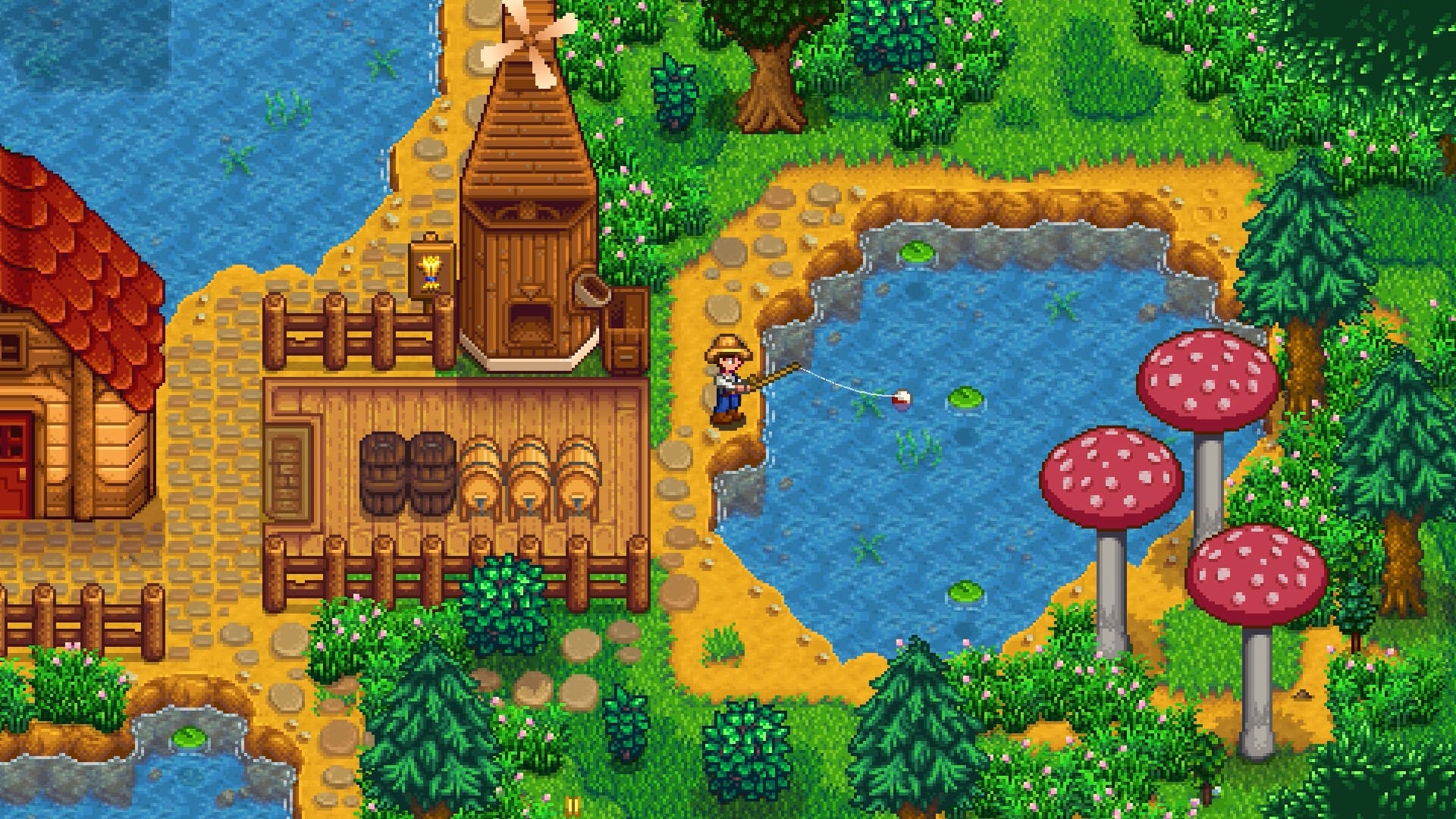This article contains spoilers for Stardew Valley.
It was the summer of 2021. The winds of January carried with them a lingering sense of malaise, a reminder of last January, which dumped a litany of horrors at our door: the stirrings of an ‘unprecedented’ pandemic, unrelenting thoughts of bushland aflame, and the looming threat of capitalist-induced climate catastrophe ever-present in my mind. Yet, as the weeks wore on, this January rang with new, golden promise. I had discovered Stardew Valley.
I was gifted Stardew Valley, an indie farming game, on Steam by some friends for Christmas. It was, in short, a revelation. It is impossible to spend time in this desktop countryside without feeling intimately drawn to its green splendor. This kind of deep connection is muted by the everyday humdrum of life in a rapidly-moving capitalist society; as students and workers, we are robbed of leisure time to experience nature and reconnect with our planet. We forget that we have the capacity to shape our world with our actions and choices, and with such a deficit of time and energy as our spirits are constantly sapped by capitalism, it is understandable to feel the urge to escape.
In Stardew Valley, the player, disillusioned with their dreary 9-to-5 desk job at Joja Corp, quits and moves to the idyllic countryside after inheriting a dilapidated farm in the heart of the magical Stardew Valley. The farm is located on the outskirts of the quiet Pelican Town, populated by an eclectic community of characters. You spend your days growing crops, fishing, foraging and raising livestock as you rotate through the four seasons, exploring the monster-infested mines and chopping wood in the Cindersap Forest.
The beauty of Stardew Valley is that there is no end goal, no final destination at which to close your laptop for the last time. It is a wonderfully open-ended game, punctuated by quests and directed by a coherent narrative flow as you explore the valley and uncover its secrets. The player finds peace in the undefined possibilities of directly shaping and caring for this world.
It was a warm afternoon when I started playing and in two shakes of a lamb’s tail, I had racked up over 100 hours of gameplay. My farm, affectionately named Fairywren Farm, quickly grew to house chickens and cows. I set up little cabins so that my friends could join me on my first steps towards my dream commune. Venturing into town, I befriended the lilac-locked Abigail, the aspiring seamstress Emily, the tent-dwelling Linus, and even the eccentric wizard Rasmodius, who lived alone in a tower on the edge of Cindersap Forest. I fell back in love with digital gameplay, in this valley of peace and possibility. I was a troubled student no longer, becoming instead a budding farmer aspiring to be besties with pretty girls in the village.
There are lessons to be gleaned from this tiny digital world. I’d point out that simulation games often appeal to players as vessels through which we can create the world of our dreams. Indeed, Stardew Valley has the power to make us keenly aware of a modern yearning for an alternative to capitalism, and reconciles this yearning with its community-based gameplay, in which you can give and receive gifts from the townspeople that you befriend and work to improve the town through the Community Centre (that is, if you don’t join forces with Joja Corp, which is in my opinion the wrong way to play the game). If Joja Corp is a metaphor for the callous behemoth of capitalism, Stardew Valley and its inhabitants are a glittering epitome of a world structured around strong communities and respect for the environment; a world just beyond our reach.
In addition, I would argue that Stardew Valley can also be a site of queer awakening and self-actualisation. In the game, there are a diverse range of characters that the player is able to court and marry, regardless of their gender identity. Video games today are heavily saturated with cis-heteronormativity, and it is refreshing to have queerness so naturally integrated into Stardew Valley’s gameplay. Within the confines of my screen, I am allowed to explore what in my reality seems like a sapphic pipe-dream. The game understands that queerness is as intrinsic to the world as the air that we breathe; that in itself is a gift and a potent antidote to heteronormativity.
The magic of Stardew Valley is quite plain to me. It allows me to imagine a place beyond capitalism, and encourages me to find peace in human connection and community. It is a world punctuated by undefined horizons of possibility, and the capacity for queer self-actualisation. I love that I can grow crops in my greenhouse, raise cows and chickens and sheep, and marry a girl with purple hair and an affinity for adventure. I love my little house, I love Pelican Town, and I love the little digital life that I have built for myself. That is more than enough.





